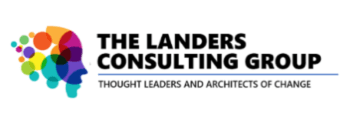This article is about branding and brand. It’s a small part of successfully marketing yourself, but a vitally important one. Maybe it’s the most important factor in being successful as an independent consultant.
Why brand is so important
There are some 200,000+ consultants in the United States competing for the attention of prospective clients. To be successful you must differentiate yourself from the masses. Let’s face it, just about everyone who calls herself or himself a consultant is not all that different than the others. You may have a PhD, a MA, or 20+ years of experience. So what? It wouldn’t be too terribly surprising to learn that there are 50,000 competitors who can claim the same or better qualifications.
Michael Porter notes in his book Competitive Advantage: Creating and sustaining superior performance, “differentiation will lead to superior performance”. He devotes some 44 pages to differentiation. Most of what he writes doesn’t apply directly to the independent consultant, but his stressing the need to differentiate oneself in the marketplace is directly applicable. It begs a question. Why you?
What differentiates you from your competitors?
You’ve probably already answered that question as you’ve written your elevator pitch or prepared your webpage. My hunch is that your answer and your pitch isn’t all that different from your competitors. There must be something truly unique or at least very interesting about you that will cause people to stop and take notice. What makes that happen are two key parts of a brand: 1) your story, and 2) your beliefs. There are other parts of a brand, but these are the two that will get someone to talk with you.
What is a brand?
The definition of “brand” in America has changed over the last 150 years or so. Way back, a brand was a cattle owner’s symbol burned into the hide of his cattle. About 100 years later, “brand” was understood to be a non-generic name for a product. For example, “Tide” instead of “laundry detergent”. Sometime after the 1960’s David Ogilvy,
“The Father of Advertising” and the most sought-after advertising executive in the country at the time, defined brand as “the intangible sum of a product’s attributes”. More recently, Jerry McLaughlin, writing in Forbes, defined brand as “what your prospect thinks of when he or she hears your brand name… both factual… and emotional…”
Some people think of “brand name” as the name signifying a product or service and “brand” as the perception people have about that product or service. It’s this latter definition that I find the most useful in differentiating myself from the competition.
“The Most Comprehensive Certificate Program in OD and Change Leadership in the World”
That’s the brand I use with the OD and change certificate program my partner and I are creating in collaboration with the Peter Drucker Graduate School of Management. There are other OD and change certifications in the marketplace. Some are offered by very well-known universities, like the Drucker Graduate School. But, ours is the “most comprehensive.”
What makes our program the most comprehensive in the world are its five components. First, we have an online competency assessment instrument that automatically generates an individual development plan with recommended actions to improve the respondent’s knowledge and skills. Along with the competency assessment are three eLearning programs, a 3-day experiential workshop, and three follow-up group coaching sessions. No other OD and change certificate program includes these five components, making ours the most comprehensive in the world.
It differentiates our program from all of our competitors.
Beliefs are intangible and important aspects of brand
Think of beliefs as the core values that you personally hold irrevocable and immutable. I have two of these: sharing and accountability. It should be readily obvious based on what’s been written here that sharing is a personal value of mine. I was blessed to have great mentors and great friends who helped me along the way. They took time to listen, explain, and challenge me. I feel obliged to do the same. I am very comfortable sharing knowledge and skills with my clients and associates. The goal is for clients to reach their destinations and continue beyond that on their own. I have to share for that to happen.
Accountability impacts brand
There are a lot of definitions of accountability. The one I dislike the most is when someone has done something wrong and now they have to be “held accountable”. Basically, that means blaming and berating them for their failure or wrongdoing. Admonishment doesn’t help anything, except perhaps the egos of those doing the blaming and berating. It does nothing to ensure that performance is better in the future. In fact, it mostly guarantees that whoever made the mistake will hide from the punisher so he or she won’t be fired. Most people, if situations are handled correctly, will learn from their mistakes and be the better for it.
I define accountability as owning a project 100% from the outset and being 100% answerable for all that happens along the way, including planning, implementation, results, learning, and application of lessons learned in the future. A good consultant is accountable. A better consultant is able to instill a sense of accountability throughout a client’s organization, a place where people give their words and deliver on their promises. I share these thoughts and values with my clients at the outset, so they know what’s important to me. Hopefully, these are important to them as well.
Getting Back to the Main Point
This article presents two aspects of brand: your story and your beliefs. These are effective only if you are passionate about them and can easily make them part of conversations. You want people to know them, understand them, and see how they are part of what you do and how you do it. Only when a consultant is able to actualize her or his beliefs through behaviors do they become real to the client. Until then, they are simply nice sounding words.
There’s a lot more to brand, as you know. I wrote this because the consultants I’ve been talking to don’t really understand what brand is or how it can differentiate them from the competition. Perhaps it has provided you with some insights that will help improve your marketing and brand. I hope so.


best article ever